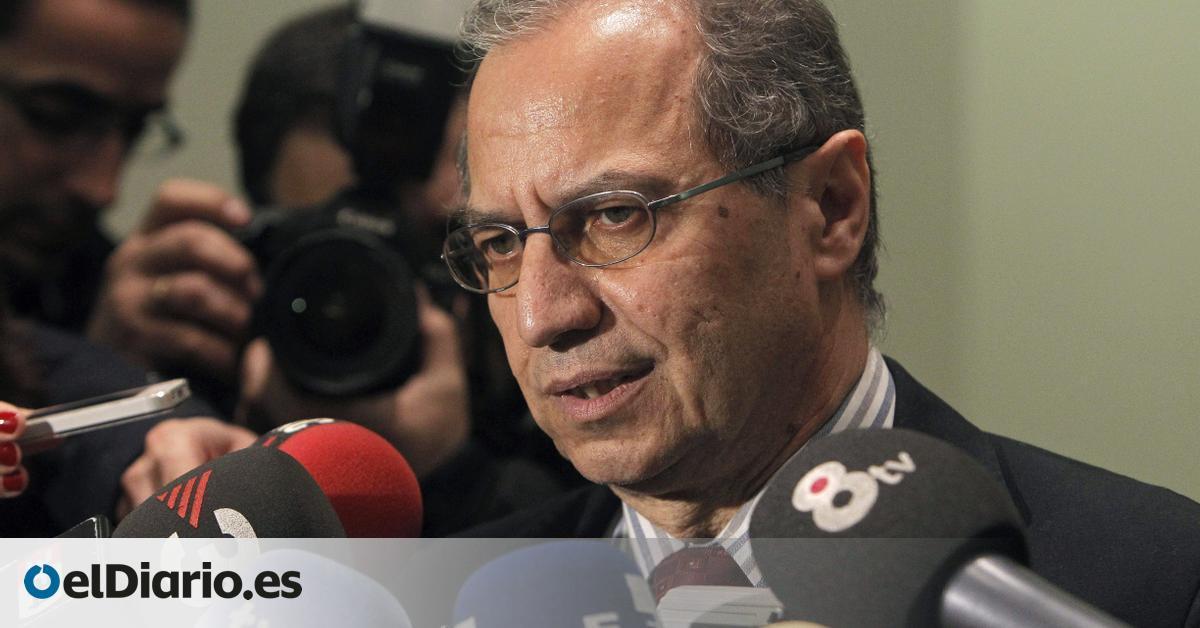
Can Operation Catalunya be investigated? The question received two opposite answers this Monday. The Superior Prosecutor’s Office of Catalonia will investigate the maneuvers of the PP political brigade to discredit its former boss, the prosecutor Martín Rodríguez Sol. 600 kilometers away, the judge of the National Court Manuel García Castellón, in line with what has been Defending the Anti-Corruption Prosecutor’s Office these years, it has insisted on its opposition to investigating another chapter of the plot, the one related to the maneuvers in Andorra to obtain the accounts of the Pujol family. The rejection is added to the refusal of different courts to admit the complaints of several people affected by the plot.
The decree signed by the top prosecutor of Catalonia, Francisco Bañeres, represents the first formal investigation by the Public Ministry following the revelations last week published in elDiario.es and La Vanguardia, which with unpublished documents and sources detailed the operation of the plot that nested in the Ministry of the Interior in the PP Government of Mariano Rajoy.
The political brigade carried out prospective investigations prohibited by law not only against independentists but against anyone who did not align with the PP when fighting the process. For example, the case of former senior prosecutor Rodríguez Sol, who in 2012 wanted to investigate whether the publication in The world that a Police report linked “accounts in Switzerland” of Artur Mas and Jordi Pujol with the Palau case of irregular financing of Convergència. The consequence was to appear in the documents of the objectives to follow of the plot.
The report (actually, a draft for which no one has taken responsibility) turned out to be one of the publications born within the political brigade of the PP in its dirty war against the independence movement. The investigating judge in the Palau case immediately denied having ordered any documents from the Police. Two commissioners of the plot even proposed to the prosecutor in the case a search at the Convergència headquarters on the eve of the Catalan elections of November 2012.
In its decree this Monday, the Prosecutor’s Office wants to investigate “the undisguised objective of discrediting the then highest tax authority” in Catalonia “for the simple fact” of expressing “its intention to investigate alleged crimes committed by the Ministry of the Interior in the course of investigations against some leaders of the Catalan independence movement.”
The opening of proceedings has been followed with interest in Barcelona legal circles. Especially because of the reputation and prestige that Rodríguez Sol maintains in Catalonia, both in conservative judicial and fiscal sectors – from which he comes – and progressive ones.
His resignation as senior prosecutor in 2013, pushed by the State Attorney General’s Office for rejecting the Government’s sovereignty consultation in an interview but recommending legal changes to know the will of the citizens, already caused renewed indignation as a result of the finding, almost a decade later, after he was a victim of Operation Catalunya. Precisely the passage of time and the eventual prescription of crimes are emerging as two of the possible obstacles to the proceedings opened this Monday.
In addition to collecting the documentation revealed by elDiario.es and La Vanguardia, the Superior Prosecutor’s Office of Catalonia has commissioned the Police to find out which officials wrote the report that asked to investigate Rodríguez Sol for his “links” with Unió Democràtica de Catalunya and “the commissions managed by the party’s lawyers.
This statement without evidence from the document that was circulated by the Interior was never prosecuted. There is also no indication or proof that Rodríguez Sol had any relationship with the illegal financing of Unió, a now defunct group of which in 2015 he would be part of its lists for the Parliamentary elections.
The Pujol wall
While in Barcelona the Public Ministry gave the green light to its first investigation this Monday, in Madrid Judge Manuel García Castellón refused, with the approval of the Anti-Corruption Prosecutor’s Office, to investigate one of the maneuvers of the political brigade of which the most traces remain. : the attempt to blackmail executives of the Andorran bank BPA to obtain banking details of the Pujol Ferrusola family.
The refusal is the same that, from other courts, five targets of Operation Catalunya have received (the former president of FC Barcelona Sandro Rosell, the former Minister of Economy Jaume Giró, the former head of the Police in Catalonia Narciso Ortega, the Sumarroca family and the bankers of the Andorran entity BPA). All of their complaints have been filed in recent years except that of the Sumarrocas, which is inactive after a procedural journey of more than a year between the Supreme Court, the National Court and the Plaza Castilla courts in Madrid.
The order, written this Monday by Judge García Castellón hours after elDiario.es reported that it had been pending for two years, is more sparse in explanations than the magistrate’s first refusal of Jordi Pujol Ferrusola’s request to open an investigation within the Villarejo case on Operation Catalunya.
Both the judge’s first and second refusal coincide in relying on the arguments that the Anti-Corruption Prosecutor’s Office provided to refuse to investigate Operation Catalunya in the Villarejo case. The rejection represents an attempt to shield the case regarding the origin of the Pujols’ fortune pending trial for years, and which the family wants to dismantle through indications that the Police obtained their bank details illegally before they were formally requested by Justice.
The refusal of Judge García Castellón and Anti-Corruption to open an investigation occurs despite the fact that, in his resolutions, the magistrate, supported by the tax theses, recognizes that four of Villarejo’s ‘information notes’ that are part of the macro-cause regarding The commissioner’s businesses could be considered evidence of the commission of criminal acts against the Pujol family. It should also be remembered that these notes have not appeared in the case of the members of the former president’s family, but they did serve to prepare the pseudo-reports that were published in the media coinciding with critical moments of the sovereignty process.
However, the magistrate refuses to investigate the notes that he recognizes as evidence of a crime because the “criminal activity” would have taken place in Andorra and a judge from the principality is already investigating it. That is to say, for Judge García Castellón, since there is an open case in Andorra (in a deadlock due to the brake that the Spanish Justice has placed on collaborating with the principality’s judge), the maneuvers of the political brigade cannot be investigated in Spain. of the PP against the Pujols.
All this despite the fact that in Jordi Pujol Ferrusola’s appeal, his lawyer Albert Carrillo had listed the jurisprudence that would not prevent the National Court from investigating the facts in parallel with the Andorran judge. Once the appeal is supported before Judge García Castellón, the defense can now insist before the Criminal Court.
Source: www.eldiario.es

